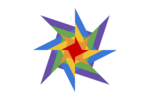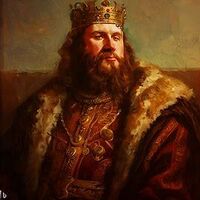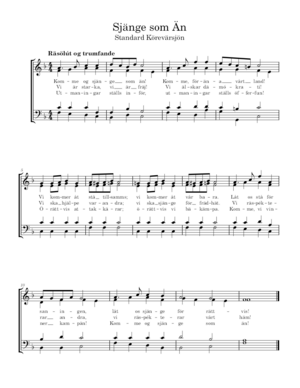Kara: Difference between revisions
Anonymous21 (talk | contribs) No edit summary |
Anonymous21 (talk | contribs) |
||
| (90 intermediate revisions by 2 users not shown) | |||
| Line 1: | Line 1: | ||
{{disambig|the country in northeastern Uletha|[[Kara (city)|a city of the same name]]}} | {{disambig|the country in northeastern Uletha|[[Kara (city)|a city of the same name]]}} | ||
{{Infocard|name=United Republic of Kara|native_language=Karska|native_name=Fjörnåde Repúblikke Kåra|capital=[[Kara (city)|Kara]]|flag=karaflagrevised.png|latitude=52.85589|longitude=127.25474|zoom=6|relation=54457|intro='''Kara''', officially known as the '''United Republic of Kara''' (Karska: ''Fjörnåde Repúblikke Kåra''; | {{Infocard|name=United Republic of Kara|native_language=Karska|native_name=Fjörnåde Repúblikke Kåra|capital=[[Kara (city)|Kara]]|flag=karaflagrevised.png|latitude=52.85589|longitude=127.25474|zoom=6|relation=54457|intro='''Kara''', officially known as the '''United Republic of Kara''' (Karska: ''Fjörnåde Repúblikke Kåra''; | ||
Vezhek: ''Vorencka Republika Kyorja''; Yumerth: ''Rebulið Jarala Bäðя'') is a country in East Uletha. It shares a border with [[Älved]], [[Boscunis]], [[Wyster]], and [[Ogesten]]. | |||
The United Republic of Kara was established in 1934 with the signing of the Union Treaty of Kara, which united the independent states of Karskat, | The United Republic of Kara was established in January 1934 with the signing of the Union Treaty of Kara, which united the independent states of Karskat, Vezhekja, and Yumerd under a federal democratic republic. | ||
Initially a | Initially a 3-state federal union with a very weak federal government, Kara's states remained relatively distinct culturally and linguistically. However, increased cultural mixing and growing demands for federal infrastructure and social programs led to the drafting of the United Kara Amendment of 1978, which passed with strong support from voters of all regions. The amendment, which took effect on 1 January 1979, created a new constitution that replaced the Union Treaty as the law of the land, replacing the initial 3-member national council that ruled with the current system of a national president and a 300-member legislature. It also abolished the 3-state system, replacing it with the current 17-state federal system. | ||
Today, Kara is a modern, highly developed country with a regulated capitalist economy focused on modern agriculture, technology, and a rapidly-growing renewable energies sector. The government provides many benefits to citizens, especially to the socioeconomically disadvantaged. The national constitution guarantees significant freedoms to individuals and protection for ethnic minority groups. | |||
== Geography and Climate == | Geographically, most of the country is situated in or around the valleys of the Tebbjet and Roving Rivers or their tributaries. Both rivers' valleys and the coastline between their mouths are highly populated, with their fertile soil and temperate climate providing an environment in which agriculture has flourished. Kara, the capital city, is located at the mouth of the Tebbjet River and is the center of a chain of urban areas stretching from Täbbjetsstad to Mynnestad. Much of the north of the country is covered in semi-mountainous forests, and the extreme north has a more tundra-like climate around the southern bit of the Boscunian Alps that reaches into the country.|anthem=Sjänge som än (''Sing as One'')|motto=Fjörnåde för Dämókrati (''United for Democracy'')}} | ||
==Geography and Climate== | |||
Kara has a mixed temperate climate. The southern coast and Tebbjet River valley are particularly temperate, while the northern states are characterized by an alpine mountain climate. | Kara has a mixed temperate climate. The southern coast and Tebbjet River valley are particularly temperate, while the northern states are characterized by an alpine mountain climate. | ||
== | ==History== | ||
=== Pre-Unification (before 1934) === | |||
Prior to the formation of the republic, Kara existed as three separate states: Karskat, Vezhekja, and Yumerd. | |||
====Karskat==== | |||
The areas making up Karskat were once occupied by Yumerthic and Techerian peoples. Sometime during the late 11th or early 12th centuries, however, a large group of West Ulethan people known as Kjels migrated to the area surrounding the mouth of the Tebbjet River. Within a few centuries, Kjellic peoples had intermixed with the Yumerthic and Techerian peoples in the area, and Kjellic religion, culture, and language became dominant. The Kjellic language was influenced to some extent by Yumerthic and Techerian languages, creating the modern language of Karska. | |||
The Kingdom of Karskat was a country that made up much of what is now southern coastal Kara, and it contained Kara City, which is now the capital. The kingdom was officially founded in 1309 by Eryk Johansson af Kåra when he declared himself king over the Duchy of Kara, which was founded by his grandfather, a Lord Birjer of Kara, 50 years prior. Within its first few centuries, the kingdom grew in size through conquest and treaty. Karskat was ruled by monarchs until unification into Kara in 1934; from 1782 to 1934 the monarch was limited by a constitution and eventually a parliament. | |||
Kara | ====Monarchs ==== | ||
{| class="wikitable sortable" | |||
|+Monarchs of Karskat, 1309-1934 | |||
! rowspan="2" |# | |||
! colspan="2" |Reign | |||
! rowspan="2" | Regnal Name | |||
! rowspan="2" |Birth & Death | |||
! rowspan="2" |Photo | |||
! rowspan="2" |Consort(s) | |||
|- | |||
!Years | |||
!Length | |||
|- | |||
|1 | |||
|1309 - 1330 | |||
|19 yrs. | |||
|Eryk I | |||
|1272 - 1330 | |||
|[[File:ErykI.jpg|200x200px]] | |||
|Äddet Birjersdytter | |||
|- | |||
|2 | |||
|1330 - 1354 | |||
|24 yrs. | |||
|Hans I | |||
|1309 - 1354 | |||
|[[File:HansI.jpg|200x200px]] | |||
|Sara Söfje Haskfryrsdytter | |||
|- | |||
|3 | |||
|1354 - 1380 | |||
|26 yrs. | |||
|Birjer II<ref>When declaring himself king, Eryk posthumously crowned his grandfather and father as Birjer I and Johan I, respectively, and so the first living monarchs named Birjer and Johan ruled as Birjer II and Johan II.</ref> | |||
|1336 - 1380 | |||
| | |||
|Mari Svänsdytter | |||
Johánne Jöhansdytter | |||
|- | |||
|4 | |||
|1380 - 1386 | |||
|6 yrs. | |||
|Birjer III | |||
|1365 - 1386 | |||
| | |||
|N/A | |||
|- | |||
|5 | |||
|1386 - 1388 | |||
|2 yrs. | |||
|Eryk II | |||
|1372 - 1388 | |||
| | |||
|N/A | |||
|- | |||
|6 | |||
|1388 - 1402 | |||
|14 yrs. | |||
|Haskfryr I | |||
|1342 - 1402 | |||
| | |||
|Kiri Byrman | |||
Johánne Jöhansdytter | |||
|- | |||
|7 | |||
|1402 - 1414 | |||
|12 yrs. | |||
|Johánnes I | |||
|1374 - 1414 | |||
| | |||
|Anna Kꝏvrœ | |||
|- | |||
|8 | |||
|1414 - 1422 | |||
|8 yrs. | |||
|Birjer IV | |||
|1406 - 1422 | |||
| | |||
|N/A | |||
|- | |||
|9 | |||
|1422 - 1425 | |||
|3 yrs. | |||
|Kiri I | |||
|1412 - 1425 | |||
| | |||
| N/A | |||
|- | |||
|10 | |||
|1425 - 1440 | |||
|15 yrs. | |||
|Jönas I | |||
|1383 - 1440 | |||
| | |||
|N/A | |||
|- | |||
|11 | |||
|1440 - 1458 | |||
|18 yrs. | |||
|Johánne I | |||
|1393 - 1458 | |||
| | |||
|Öskar Jösefsson | |||
|- | |||
|12 | |||
|1458 - 1486 | |||
|28 yrs. | |||
|Jösef I | |||
|1430 - 1486 | |||
| | |||
|Svän Byrman<ref>While same-sex marriages were not allowed at this time, unmarried but long-term same-sex partners (like Jösef and Svän) were usually accepted as being a valid (although less "important" than a marriage) relationship, especially for royalty and nobility. In fact, in some wealthy families, same-sex partners could even adopt children, as did Jösef and Svän with their son, King Kristaf I.</ref> | |||
|- | |||
|13 | |||
|1486 - 1515 | |||
|29 yrs. | |||
|Kristaf I | |||
|1457 - 1515 | |||
| | |||
|Sara Lisa Svänsdytter | |||
|- | |||
|14 | |||
|1515 - 1530 | |||
|15 yrs. | |||
|Sara I | |||
|1486 - 1530 | |||
| | |||
|Franz Oskar Byrkamp | |||
|- | |||
|15 | |||
|1530 - 1540 | |||
|10 yrs. | |||
|Johánne II | |||
|1513 - 1540 | |||
| | |||
| Ande Svänsson | |||
|- | |||
|16 | |||
|1540 - 1570 | |||
|30 yrs. | |||
|Haskfryr II | |||
|1521 - 1570 | |||
| | |||
| | |||
|} | |||
==== Vezhekja ==== | |||
The Vezhek people appear to have differentiated as a distinct group during around the 15th century. Genetic testing has shown that most Vezheks descend from a thoroughly-mixed group of Yumerths and Techerians, with some Kjellic ancestry as well. The Vezhek language appears to have originated as a hybrid of Techerian and a now-extinct relative of Yumerth, but several centuries of contact with Karska have significantly influenced the language as well. | |||
=== Post-Unification (1934-present) === | |||
==== Pre-Amendment (1934-1978) ==== | |||
===== Leaders ===== | |||
The Union Treaty created a national council that served as the presidency of the otherwise separate states of Karskat, Vezhekja, and Yumerd. The council consisted of one member from each state who was elected on a staggered 6-year term. | |||
{| class="wikitable" | |||
|+National Council of the Union of Kara | |||
! rowspan="2" |Years | |||
! colspan="3" |Council Members | |||
|- | |||
!Karskat | |||
!Vezhekja | |||
!Yumerd | |||
|- | |||
|1934-1935 | |||
| rowspan="9" |Haskfryr Birjär Nilsson | |||
|Dannjell Šafbvrie | |||
| rowspan="5" |Ƹiva Bяla Яvleb | |||
|- | |||
|1936-1937 | |||
| rowspan="6" |Jandreijž Pjotr Mižgailžon | |||
|- | |||
|1938-1939 | |||
|- | |||
|1940-1941 | |||
|- | |||
|1942-1943 | |||
|- | |||
|1944-1945 | |||
| rowspan="3" |Mloŋ Bävяne | |||
|- | |||
|1946-1947 | |||
|- | |||
|1948-1949 | |||
| rowspan="9" |Ungoillam Šajhigle | |||
|- | |||
|1950-1951 | |||
| rowspan="6" |Jon Rowela | |||
|- | |||
|1952-1953 | |||
| rowspan="6" |Danjäl Jaköbsson-Berg | |||
|- | |||
|1954-1955 | |||
|- | |||
|1956-1957 | |||
|- | |||
|1958-1959 | |||
|- | |||
|1960-1961 | |||
|- | |||
|1962-1963 | |||
| rowspan="3" |Eume Lяŋä | |||
|- | |||
|1964-1965 | |||
| rowspan="6" |Öskar Vilhelm Åttesson | |||
|- | |||
|1966-1967 | |||
| rowspan="6" |Fvillhëim Ežnekk Ŝitzže | |||
|- | |||
|1968-1969 | |||
| rowspan="6" |Ezðя Bяla Rebe | |||
|- | |||
|1970-1971 | |||
|- | |||
|1972-1973 | |||
|- | |||
|1974-1975 | |||
|- | |||
|1976-1977 | |||
| rowspan="2" |Jöns-Ålåf Brydeblom | |||
|- | |||
|1978 | |||
|Ahna Sofjaa Bljèlfve | |||
|} | |||
==== Post-Amendment (1979-present) ==== | |||
===== Presidents ===== | |||
The first president of the new governmental structure, Jöns-Ålåf Brydeblom, was sworn into office on January 1st, 1979. Elections for president are held every six years, and no president may be elected to office more than once. Currently, elections are held on December 20th, and the new president takes office on January 5th of the following year. In the case of the death, resignation, or impeachment of the president, the current Speaker of the Legislature becomes the ''de facto'' president until an election can be held; however, this procedure has never taken place as every president has completed their full term. | |||
{| class="wikitable" style="text-align: center;" | |||
|+Presidents of Kara | |||
!Term | |||
!Name | |||
!Party | |||
|- | |||
|1979-1985 | |||
|Jöns-Ålåf Brydeblom | |||
[[File:JABrydeblom.jpg|150x150px]] | |||
|Conservative | |||
|- | |||
|1985-1991 | |||
|Mattéas-Vilhelm Gustafsson | |||
[[File:MVGustafsson.jpg|150x150px]] | |||
|National Democrats | |||
|- | |||
|1991-1997 | |||
|Äƹe Olяmeð Ebrenя | |||
[[File:AEbrener.jpg|150x150px]] | |||
|National Democrats | |||
|- | |||
|1997-2003 | |||
|Klara Birgitta Haskfryrsson | |||
[[File:ABHaskfryrsson.jpg|150x150px]] | |||
|Independent | |||
|- | |||
|2003-2009 | |||
|Bяla Jozev Ŋelävя | |||
[[File:BJNglaver.jpg|150x150px]] | |||
|Centrist | |||
|- | |||
|2009-2016 | |||
|Jaköb Üŋoilam Rubeŋя-Ultermann | |||
[[File:JURUltermann.jpg|150x150px]] | |||
|Independent | |||
|- | |||
|2016-2022 | |||
|Ahna Èlišabeta Škri-Mmonejž | |||
[[File:SMShkriMmonejzh.jpg|150x150px]] | |||
|National Democrats | |||
|- | |||
|2023-present | |||
|Kiri-Anna Päjtersson-Årdl | |||
[[File:KAPajterssonArdl.jpg|150x150px]] | |||
|Centrist | |||
|} | |||
==Government and Politics== | |||
===Administrative Divisions=== | |||
{{Infobox admin div|name=Kara|first-level=17 länär (''states'')|second-level=151 kommunär (''municipalities'')}} | |||
Kara is divided into of 17 federal divisions, known as ''länär'' (LE-ner) or states, which have considerable governing power. Each state is further divided into municipalities, known as ''kommunär'' (CO-moon-eyr); each municipality administers public works and utilities as well as some local community programs. The capital city, Kara, is incorporated as its own state with the same privileges as the other states but is not split up into municipalities due to the impracticality of subdividing a single conurbation, and so the state government also carries out municipality-level responsibilities. | |||
{| class="wikitable sortable" | {| class="wikitable sortable" | ||
|+ | |+ | ||
! colspan="2" |State | ! colspan="2" | State | ||
! | |||
! colspan="2" |Municipalities | ! colspan="2" |Municipalities | ||
|- | |- | ||
!Name (Native Name) | !Name (Native Name) | ||
!Capital | !Capital | ||
!Area (km<sup>2</sup>) | |||
!Names | !Names | ||
!# in State | !# in State | ||
|- | |||
|Bjergdals Län | |||
|Kärrstad | |||
|2,967.40 | |||
| | |||
{| class="mw-collapsible mw-collapsed" | |||
|+ | |||
|Älfeslätts Kommun | |||
|- | |||
|Gaffets Kommun | |||
|- | |||
|Jånåjks Kommun | |||
|- | |||
|Johansbergs Kommun | |||
|- | |||
| Kärrstads Kommun | |||
|- | |||
| Kyrillebjörgs Kommun | |||
|- | |||
|Nådensteds Kommun | |||
|} | |||
|7 | |||
|- | |- | ||
|Bördäjgrådes Län | |Bördäjgrådes Län | ||
| | |Fjäjstelstad | ||
|1,587.68 | |||
| | |||
{| class="mw-collapsible mw-collapsed" | |||
|+ | |||
|Äjbsö Kommun | |||
|- | |||
|Åbbåkens Kommun | |||
|- | |||
|Dröfverdys Kommun | |||
|- | |||
|Fjäjstelstads Kommun | |||
|- | |||
|Hagalids Kommun | |||
|- | |||
|Johánneskvärns Kommun | |||
|- | |||
|Katädrálbjörgs Kommun | |||
|- | |||
|Kvöde Kommun | |||
|- | |||
|Lilskrufs Kommun | |||
|- | |||
|Mjölysse Kommun | |||
|- | |||
|Nåkla Kommun | |||
|- | |||
|Pjästurby Kommun | |||
|- | |||
|Skönkojpengs Kommun | |||
|- | |||
|Skryppe Kommun | |||
|- | |||
|Starkefjä Kommun | |||
|- | |||
|Störsökke Kommun | |||
|- | |||
|Stramsdeböde Kommun | |||
|- | |||
|Svänskärke Kommun | |||
|- | |||
|Västredåls Kommun | |||
|- | |||
|Viktórjäne Kommun | |||
|- | |||
|Vrudjála Kommun | |||
|} | |||
|21 | |||
|- | |||
|Dilsryls Län | |||
(Rüv Ðilzrüla) | |||
|Ðilzrül | |||
|1,430.66 | |||
| | |||
{| class="mw-collapsible mw-collapsed" | |||
|+ | |||
|- | |||
|Beðяŋ Ailvejaðla | |||
|- | |||
|Beðяŋ Ajanmяla | |||
|- | |||
|Beðяŋ Bяlarivяmojuzяla | |||
|- | |||
|Beðяŋ Ðilzrüla | |||
|- | |||
|Beðяŋ Evelƹoŋla | |||
|- | |||
|Beðяŋ Ŋuvuŋlela | |||
|- | |||
|Beðяŋ Obяðla | |||
|- | |||
|Beðяŋ Яvulväƹrola | |||
|- | |||
|Beðяŋ Ƹarvela | |||
|} | |||
|9 | |||
|- | |||
|Dörds Län | |||
(<bdi>Rüv Ðoяðla)</bdi> | |||
|Ŋülяwiƹa | |||
|3,246.80 | |||
| | |||
{| class="mw-collapsible mw-collapsed" | |||
|+ | |||
|Beðяŋ Ðovaŋla | |||
|- | |||
|Beðяŋ Eblaðanla | |||
|- | |||
|Beðяŋ Joneboðla | |||
|- | |||
|Beðяŋ Lяväla | |||
|- | |||
|Beðяŋ Ŋülяwiƹala | |||
|- | |||
|Beðяŋ Oweaðrinlala | |||
|- | |||
|Beðяŋ Reviala | |||
|- | |||
|Beðяŋ Zäzяvlula | |||
|} | |||
|8 | |||
|- | |||
| Gaffedals Län | |||
(Rüv Ðialƹaiðaiяlala) | |||
|Vrolevroð | |||
|1,979.04 | |||
| | |||
{| class="mw-collapsible mw-collapsed" | |||
|+ | |||
|Beðяŋ Bluvla | |||
|- | |||
|Beðяŋ Ðevяƹla | |||
|- | |||
|Beðяŋ Moäwala | |||
|- | |||
|Beðяŋ Vrolevroðla | |||
|- | |||
|Beðяŋ Wяŋjajovlala | |||
|} | |||
| 5 | |||
|- | |||
|Gränös Län | |||
|Gröndälf | |||
|2,901.37 | |||
| | |||
{| class="mw-collapsible mw-collapsed" | |||
|+ | |||
|Flyveryds Kommun | |||
|- | |||
|Fjäjtorps Kommun | |||
|- | |||
|Gröndälfs Kommun | |||
|- | |||
|Haraldsbjörgs Kommun | |||
|- | |||
|Jåtténe Kommun | |||
|- | |||
|Kväränlänge Kommun | |||
|- | |||
|Måna Kommun | |||
|- | |||
|Onderyds Kommun | |||
|- | |||
|Sankta Söfíje Kommun | |||
|} | |||
|9 | |||
|- | |||
|Gvajllåds Län | |||
|Söjlestad | |||
| 1,312.59 | |||
| | |||
{| class="mw-collapsible mw-collapsed" | |||
|+ | |||
|Andräjshäms Kommun | |||
|- | |||
|Ädrúnaby Kommun | |||
|- | |||
|Bladstrams Kommun | |||
|- | |||
|Brynderyds Kommun | |||
|- | |||
|Frydekärke Kommun | |||
|- | |||
|Fvilhävns Kommun | |||
|- | |||
|Gåvetorps Kommun | |||
|- | |||
|Hjäffeblums Kommun | |||
|- | |||
|Jusingå Kommun | |||
|- | |||
|Liljeryds Kommun | |||
|- | |||
|Måsséts Kommun | |||
|- | |||
|Sådabuls Kommun | |||
|- | |||
|Söjlestads Kommun | |||
|- | |||
|Stänhöge Kommun | |||
|- | |||
|Storkvärns Kommun | |||
|- | |||
|Vilhelmstads Kommun | |||
|- | |||
|Viskestads Kommun | |||
|- | |||
|Zakrisfjälds Kommun | |||
|} | |||
|18 | |||
|- | |||
|Kåra Stads Län | |||
|[[Kara (city)|Kåra]] | |||
|174.79 | |||
|Kåra Stads Län<ref>The state government fills the role of municipal government and is considered a municipality for statistical purposes. </ref> | |||
|1 | |||
|- | |||
|Kireks Län | |||
|Öddeskryfve | |||
|2,262.32 | |||
| | |||
{| class="mw-collapsible mw-collapsed" | |||
|+ | |||
|Anderslyds Kommun | |||
|- | |||
|Ågresköns Kommun | |||
|- | |||
|Öddeskryfve Kommun | |||
|- | |||
|Svänbergs Kommung | |||
|} | |||
|4 | |||
|- | |||
|Ljenbäkks Län | |||
|Nykojpeng | |||
|1,111.98 | |||
| | |||
{| class="mw-collapsible mw-collapsed" | |||
|+ | |||
|Björnaryds Kommun | |||
|- | |||
|Märänétjårps Kommun | |||
|- | |||
|Nykojpengs Kommun | |||
|- | |||
|Tålle Kommun | |||
|} | |||
|4 | |||
|- | |||
| Mittedålts Län | |||
|Strammesdal | |||
|2,392.60 | |||
| | |||
{| class="mw-collapsible mw-collapsed" | |||
|+ | |||
|Ängeskögs Kommun | |||
|- | |||
|Dålby Kommun | |||
|- | |||
|Krökekjulle Kommun | |||
|- | |||
|Strammesdals Kommun | |||
|} | |||
|4 | |||
|- | |||
|Murräs Län | |||
|Väjtspläjt | |||
|2,246.27 | |||
| | |||
{| class="mw-collapsible mw-collapsed" | |||
|+ | |||
|Flödsdålts Kommun | |||
|- | |||
|Jystehjälms Kommun | |||
|- | |||
|Nilshage Kommun | |||
|- | |||
|Stärríngebjörgs Kommun | |||
|- | |||
|Väjtspläjts Kommun | |||
|} | |||
|5 | |||
|- | |||
|Rövings Län | |||
|Hjeplingåde | |||
|2,056.14 | |||
| | |||
{| class="mw-collapsible mw-collapsed" | |||
|+ | |||
|Bjurbo Kommun | |||
|- | |||
|Brövensby Kommun | |||
|- | |||
|Flugesåms Kommun | |||
|- | |||
|Hajdlmälms Kommun | |||
|- | |||
|Hjeplingåde Kommun | |||
|- | |||
|Johansjyns Kommun | |||
|- | |||
|Kållkärke Kommun | |||
|- | |||
| Kvajls Kommun | |||
|- | |||
|Låkulle Kommun | |||
|- | |||
|Lårreby Kommun | |||
|- | |||
|Mynnestads Kommun | |||
|- | |||
|Niklasbruks Kommun | |||
|- | |||
|Ollefjäjls Kommun | |||
|- | |||
|Pådelsteds Kommun | |||
|- | |||
| Rökkehytte Kommun | |||
|- | |||
|Sanktestads Kommun | |||
|- | |||
|Värnbäkks Kommun | |||
|} | |||
|18 | |||
|- | |||
| Söjdrekösts Län | |||
|Fyrans | |||
| 1,180.22 | |||
| | | | ||
{| class="mw-collapsible mw-collapsed" | |||
|+ | |||
|Annasbjörgs Kommun | |||
|- | |||
|Bö Kommun | |||
|- | |||
|Dalóveskjons Kommun | |||
|- | |||
|Fräddekjufs Kommun | |||
|- | |||
|Fyrans Kommun | |||
|- | |||
|Hämsderyds Kommun | |||
|- | |||
|Ljunga Kommun | |||
|- | |||
|Manúve Kommun | |||
|- | |||
|Måndeskryfs Kommun | |||
|- | |||
|Pålykestads Kommun | |||
|- | |||
|Tränneskjö Kommun | |||
|- | |||
|Vättsbjörgs Kommun | |||
|- | |||
|Vikehamms Kommun | |||
|- | |||
|Vrylle Kommun | |||
|} | |||
| 15 | |||
|- | |||
|Täbbjets Län | |||
|Täbbjetsstad | |||
|1,254.55 | |||
| | |||
{| class="mw-collapsible mw-collapsed" | |||
|+ | |||
|Älfesjyns Kommun | |||
|- | |||
|Äseryds Kommun | |||
|- | |||
|Böngovs Kommun | |||
|- | |||
|Bröby Kommun | |||
|- | |||
|Färgangs Kommun | |||
|- | |||
|Förstekjulle Kommun | |||
|- | |||
|Grassemarks Kommun | |||
|- | |||
|Jönslunds Kommun | |||
|- | |||
|Lilhage Kommun | |||
|- | |||
|Störkärke Kommun | |||
|- | |||
|Täbbjetstads Kommun | |||
|} | |||
|11 | |||
|- | |||
|Upplandas Län | |||
|Kvröndesbljum | |||
|1,627.67 | |||
| | | | ||
{| class="mw-collapsible mw-collapsed" | |||
|+ | |||
|Fjurve Kommun | |||
|- | |- | ||
| | |Kvröndesbljums Kommun | ||
| | |- | ||
| | |Lillebjörgs Kommun | ||
|} | |||
|3 | |||
|- | |||
|Vejeks Län | |||
(Vèžèks Stot) | |||
|Vèžèkstot | |||
|1,823.56 | |||
| | |||
{| class="mw-collapsible mw-collapsed" | |||
|+ | |||
|Čëllèdebjorkejts Kommun | |||
|- | |||
|Kitš-Jʹapfijks Kommun | |||
|- | |||
|Mjelmstrums Kommun | |||
|- | |||
|Vèžèkstodts Kommun | |||
|} | |||
|4 | |||
|}{{Infobox government|name=Kara|government_type=Federal presidential constitutional republic|capital=[[Kara (city)|Kara]]|title1=Präsident (''President'')|hos1=Kiri-Anna Päjtersson-Årdl|title2=Legisatur-Tålare (''Speaker of the Legislature'')|hos2=Astrid Mari Gabrjälsson|international_orgs=[[Assembly of Nations]] - member state • [[Association of South Ulethan Nations]] - observer state|custom_label1=Öfverdeme (''Chief Judge'')|judiciary=Hövda-Demstoll (''High Court'')|custom1=Vяn Jozev Jäðwяn|upper_house=Nationallegislatur (''National Legislature'')|political_parties={{legend|#CC2C1E|Socialist}} {{legend|#009116|Green}} {{legend|#8E4E75|Vezhek Advocates}} {{legend|#88DB89|National Democrats}} {{legend|#ADADAD|Independent}} {{legend|#8835CC|Centrist}} {{legend|#3D88F1|Conservative}} {{legend|#F1FF57|Christic}}|upper_house_diagram=Kara legislature diagram.svg}} | |||
===Politics=== | |||
The members of the legislature as well as the president are elected in partisan elections, although many candidates run (and win) without a party affiliation. Elections for the legislature are held every 2 years, with presidential elections occurring every 6 years. The legislature creates, debates, and passes federal laws with a simple (50% + 1) majority. Federal laws are subject to presidential veto, although this veto can be overridden with a 200-vote (or 2/3) majority in the legislature. | |||
Several political parties have significant influence in the legislature, with the National Democratic, Centrist, and Conservative parties each holding significant power. Independent, non-party-affiliated representatives also hold a substantial number of seats in the legislature, but members do not vote as a group or in a bloc. The current president, Kiri-Anna Päjtersson-Årdl, is a member of the Centrist party. | |||
{| | |||
|+'''Kåra Government Officials''' | |||
![[File:KAPajterssonArdl.jpg|center|framed|President Kiri-Anna Päjtersson-Årdl]] | |||
![[File:AestredGabraelzen.jpg|center|thumb|270x270px|Speaker of the Legislature Astrid Mari Gabrjälsson]] | |||
![[File:SZhodh.jpeg|thumb|Chief Judge Vяn Jozev Jäðwяn]] | |||
|} | |||
{| class="wikitable" | |||
|+Political Parties in Kara<ref>Thanks to [[Navenna|Timboh's article on Navenna]] for the inspiration for this table!</ref> | |||
!Name | |||
!Current Leader | |||
!Left/Right Ideology | |||
!Core Ideologies | |||
!Seats Held | |||
|- | |||
|National Democrats | |||
|Astrid Mari Gabrjälsson | |||
|Center-left to left | |||
|Social liberalism | |||
Ulethanism | |||
Liberal capitalism | |||
|92/300 (30.7%) | |||
|- | |||
|Conservative | |||
|Jöns-Rudolf Björgman | |||
|Center-right to right | |||
|Classical liberalism | |||
Conservatism | |||
Ulethanism | |||
|54/300 (18.0%) | |||
|- | |||
|Centrist | |||
|Ana Яŋvlaj | |||
|Center-left to center | |||
|Third-way centrism | |||
Regulated capitalism | |||
Ulethanism | |||
|50/300 (16.7%) | |||
|- | |||
|Green | |||
| Äve Gröndblad | |||
|Left to far left | |||
|Environmentalism | |||
Social democracy | |||
Ulethanism | |||
| | |15/300 (5.0%) | ||
|- | |- | ||
| | |Vezhek Advocates | ||
| | | Rašnar Glidèž | ||
| | |Varies | ||
| | |Vezhek nationalism | ||
Karaskepticism | |||
Ulethaskepticism | |||
|4/300 (1.3%) | |||
|- | |- | ||
| | |Socialist | ||
| | | Ruejя Ŋяoveƹ | ||
| | |Far left | ||
|Socialism | |||
Isolationism | |||
Populism | |||
|4/300 (1.3%) | |||
|- | |||
|Christic | |||
|Jön Adam Bånövre | |||
|Right to far right | |||
|Social paleoconservatism | |||
Christic nationalism | |||
Antiliberalism | |||
|3/300 (1.0%) | |||
|- | |||
|Independent | |||
|none | |||
|Varies | |||
| Varies | |||
|78/300 (26.0%) | |||
|} | |||
===Constitution=== | |||
The current constitution took effect in 1979 after it passed a national referendum. The document can be changed with the support of the majority of the legislature and a 66% majority of voters in the next legislative election. | |||
====Individual Rights==== | |||
The Indevídjalle-Frydhäter (''Individual Freedoms'') section of the Karska constitution guaranteed several liberties and rights in its original iteration, with some later additions: | |||
{| class="wikitable" | |||
|+ | |||
!Liberty or Right | |||
!Year Added to Constitution | |||
|- | |||
|Freedoms of speech and press | |||
| rowspan="9" |1979 (part of original consitution) | |||
|- | |||
|Freedoms of peaceful assembly and peaceful protest | |||
|- | |||
|Freedom of religious belief and practice | |||
|- | |||
|Right to speedy, public trial by impartial jury | |||
|- | |||
|Right to vote for all Karska citizens over the age of 18 | |||
|- | |||
|Right to refuse to testify against oneself | |||
|- | |||
|Freedom from invasive searches without a warrant or probable cause | |||
|- | |||
|Freedom from discrimination on the basis of race, color, class, sex, gender, ethnicity, or nationality | |||
|- | |||
|Right to citizenship for children born to at least one Karska citizen parent | |||
|- | |||
|Freedom from discrimination on the basis of religion or disability status | |||
| rowspan="2" |1980 | |||
|- | |||
|Freedom from enslavement beyond the reasonable punishment of a crime | |||
|- | |||
|Right to own weapons for purposes of hunting or personal defense, subject to reasonable government regulation intended to preserve public safety | |||
|1984 | |||
|- | |||
| Freedom from discrimination on the basis of sexual orientation or preference | |||
|1988 | |||
|- | |||
|Right to vote for all legal, permanent-resident aliens over the age of 18 who have resided in Kara for at least 5 years | |||
|1994 | |||
|- | |||
|Right to marry without regard to gender for all unmarried, consenting individuals over 18<ref>The amendment was purely symbolic as the legislature guaranteed the right to same-sex marriage in 1997.</ref> | |||
|2002 | |||
|- | |||
|Freedom from discrimination on the basis of being transgender or gender-nonconforming | |||
|2007 | |||
|- | |||
|Right to citizenship for children born to at least one permanent-resident alien parent | |||
|2018 | |||
|} | |||
===National Anthem=== | |||
[[File:SjangeSomAn.png|alt=The official Karska choral version of the national anthem, Sjänge som Än.|thumb|The official Karska choral version of the national anthem, Sing as One.]] | |||
Kara's national anthem, Sing as One, was written for the ratification ceremony of the United Kara Amendment; the first act of the National Legislature made it the official national anthem. | |||
[https://drive.google.com/file/d/1lbNEZ99MGaG8iOmv2xGPTxO741Ds_Fx6/view Audio] | |||
{| class="wikitable" | |||
|+ | |||
!Karska | |||
!Ingerish | |||
|- | |||
!Sjänge som Än | |||
!Sing as One | |||
|- | |||
|Komme og sjänge som än | |||
Komme, föräna vårt land | |||
Vi kommer åt stå tillsamms | |||
Vi kommer åt vår bara | |||
Låt os stå för saningen | |||
Låt os sjänge för rättvis | |||
Vi är starka; vi är fräj | |||
Vi älskar dämókrati | |||
Vi ska hjälpe varandra | |||
Vi ska sjänge för frädhät | |||
Vi räspékterar andra | |||
Vi räspékterar vårt häm | |||
Utmaningar ställs inför | |||
Utmaningar ställs öfferfun | |||
Örättvis attakkärar | |||
Örättvis vi bäkämpa | |||
Komme, vi vinner kampän | |||
Komme og sjänge som än | |||
| Let us come and sing as one | |||
Let us go unite our land | |||
For we are united as one | |||
We unite for all that's fair | |||
Let us stand for what is true | |||
Let us stand for what is just | |||
We are strong and we are free | |||
And we love democracy | |||
We will lend each other aid | |||
We will sue for lasting peace | |||
We respect each human heart | |||
We respect this land that's ours | |||
Challenges will come our way | |||
Challenges, they shall not stay | |||
And injustice may molest | |||
But we fight it to the end | |||
Come, the battle must be won | |||
Let us come and sing as one | |||
|} | |||
==Demographics== | |||
{{Infobox demography|name=Kara|official_languages=Karska, Vezhek (Vèžèk), Yumerth (Jumяð)|ethnicity_bars=|demonym=Karskan}} | |||
===Religion=== | |||
Kara has not had an established state religion since the United Kara Amendment of 1979. Previous to that amendment, the government designated 3 state Christic churches (one for each ethnic/linguistic region). The 3 state churches have since united to form the People's Church of Kara. | |||
{{Pie chart|thumb=left|label5=Other Christic|value9=14|label8=General Spirituality|color9=#B5B5B5|label9=Secular|value8=8|color7=#DDCB18|value7=2|label7=Animist/Spiritualist|color6=#3774FF|value6=2|label6=Judic|color5=#A7DEB2|value5=2|color4=#71EB89|radius=200|value4=2|label4=Ortholic (Christic)|color3=#7AC489|value3=3|label3=Darcodian (Christic)|color2=#49DC67|value2=15|label2=Holy Grace Church (Christic)|color1=#00A421|other=yes|value1=51|label1=People's Church of Kara (Christic)|caption=Religious Identification in Kara, 2021|color8=#DBDBDB}} | |||
Historically a Christic area, a significant majority of Karskans identify as Christic, although some other minority faiths have also gained traction, particularly through immigration. Religiously unaffiliated individuals also make up a substantial minority of the population. | |||
====People's Church of Kara==== | |||
Initially founded in Kara city from a group of Christic groups in the area in the 15th century, the Church of Kara was under the leadership of the Karska monarch until the mid-18th century. It uses a traditional liturgical service, with a particular emphasis placed on music and collective prayer in services. The church continues to play a significant role in Karska society. | |||
For its first several centuries of existence, the church's leadership exerted tight control on ideas and information within the faith, maintaining a strongly conservative belief and policy system, which continued to be very influential in society, although this influence did decrease in the 17th and 18th centuries with growing secularism and independent thought. However, the church's direction changed as a result of the 1784 secession of the Holy Grace Church in Nådensted in Bjergdals Län, which attracted many believers with its strong yet liberal belief system. In response to this crisis, the People's Church loosened control in many areas, allowing more liberal ideas to gain traction within the church. | |||
In 1928, the church's general council elected Hans Jösef Zakrisson as Head Priest of the church. Zakrisson, the ''de facto'' leader of the church's liberal wing and a staunch proponent of liberalism and democracy in society, led several reforms in the church that ultimately were very influential in the formation of modern Kara under the Union Treaty of 1934. Within a decade, the People's Church became strongly liberal-leaning (ironically, some conservative detractors defected to the Holy Grace Church, steering it to become more conservative than the People's Church). Since the 1930s, the church has held to a strongly liberal, universalist theology and a cultural emphasis on inclusion. However, the church has also remained open to a variety of theological and political ideas, and so there are some significant conservative factions within the faith, although many conservative detractors have left for the Holy Grace denomination in recent years. | |||
Nonetheless, the liberal majority has steered the church's policy in a strongly progressive direction, such as was seen in its 1963 resolution urging the Karska government to open the country to refugees and its calls for preservation of minority languages in the 1980s. More recently, the church moved in 1995 to allow same-sex couples to be married by the church in places where such marriage was legal, and this move is widely agreed to have been a key catalyst of the 1997 legislative decision and 2002 constitutional amendment guaranteeing the right to same-sex marriage in Kara. | |||
In 2011, Jöne Mäjbjerg became the first openly transgender and non-binary priest in the People's Church, and a 2016 council canonized them and renamed their local church ([Https://opengeofiction.net/way/27859159 Sankte Jöne Mäjbjergs Folkes- og Domkärke Äjbsö]) in their honor. | |||
===Languages=== | |||
As a multinational state, several languages are used across Kara, and three languages (Karska, Yumerth, and Vezhek). | |||
==== Karska==== | |||
Karska (''Kårska'') is a Gaermanic language that is spoken in areas Kara once part of Karskat. It uses a 26-letter Latinic alphabet. | |||
=====Karska Pronunciation===== | |||
| | {| class="wikitable" | ||
!Letter | |||
!IPA | |||
!Rough Federal States Ingerish Equivalence | |||
|- | |||
| rowspan="2" |Aa | |||
|⟨a⟩ | |||
| g'''o'''t | |||
|- | |||
|⟨ə⟩ or ⟨ɜ⟩ when at the end of some words | |||
|probl'''e'''m | |||
|- | |||
|Ää | |||
| ⟨ɛ⟩ | |||
|'''e'''ver | |||
|- | |||
|Åå | |||
|⟨ɔ⟩ | |||
|d'''aw'''n | |||
|- | |||
|Bb | |||
|⟨b⟩ | |||
|'''b'''ake | |||
|- | |||
| rowspan="2" |Cc | |||
|⟨s⟩ | |||
|'''c'''enter | |||
|- | |||
|⟨k⟩ | |||
|'''c'''ave | |||
|- | |||
|Dd | |||
|⟨d⟩ | |||
|'''d'''ote | |||
|- | |||
| rowspan="2" |Ee | |||
|⟨ə⟩ (schwa) | |||
|probl'''e'''m | |||
|- | |||
|⟨ɛ⟩ (when the first letter of a word or accented) | |||
|'''e'''ver | |||
|- | |||
|Ff | |||
|⟨f⟩ | |||
|'''f'''ee | |||
|- | |||
|Gg | |||
|⟨ɡ⟩ | |||
|'''g'''ood | |||
|- | |||
|Hh | |||
| ⟨h⟩ | |||
|'''h'''ome | |||
|- | |||
|Ii | |||
|⟨i⟩ | |||
| m'''e''' | |||
|- | |||
|Jj | |||
|⟨j⟩ | |||
|'''y'''ou | |||
|- | |||
|Kk | |||
|⟨k⟩ | |||
|'''c'''ave | |||
|- | |||
|Ll | |||
|⟨l⟩ | |||
|'''l'''ow | |||
|- | |||
|Mm | |||
|⟨m⟩ | |||
|'''m'''at | |||
|- | |||
| rowspan="2" |Nn | |||
|⟨n⟩ | |||
|'''n'''ever | |||
|- | |||
|⟨ŋ⟩ (when before a "g") | |||
|goi'''ng''' | |||
|- | |||
| rowspan="3" |Oo | |||
|⟨ʊ⟩ | |||
|l'''oo'''k | |||
|- | |||
|⟨œ⟩ | |||
|same as Kalmish "ö" in '''ö'''l or m'''ö'''bel | |||
|- | |||
| ⟨o⟩ (when accented, uncommon otherwise) | |||
|'''o'''ver | |||
|- | |||
|Öö | |||
|⟨o⟩ in theory, in practice often a ⟨oʊ⟩ diphthong/slide | |||
|'''o'''ver | |||
|- | |||
|Pp | |||
|⟨p⟩ | |||
|'''p'''ine | |||
|- | |||
| rowspan="2" |Rr | |||
| ⟨r⟩ or ⟨ɾ⟩ | |||
|rolled or tapped r (no Ingerish equivalent) | |||
|- | |||
|⟨ʁ⟩ (in a few locations with heavy Kalmish influence) | |||
|related to Kalmish "r" as in g'''r'''oß or '''r'''ätsel | |||
|- | |||
|Ss | |||
|⟨s⟩ | |||
|'''s'''o | |||
|- | |||
|Tt | |||
|⟨t⟩ | |||
|'''t'''oo | |||
|- | |||
|Uu | |||
|⟨u⟩ | |||
|cl'''ue''' | |||
|- | |||
|Vv | |||
|⟨v⟩ | |||
|'''v'''ow | |||
|- | |||
|Yy | |||
|⟨y⟩ | |||
|no Ingerish equivalent, essentially an ⟨i⟩ in m'''e''' with rounded lips | |||
|- | |||
|Zz | |||
|⟨z⟩ | |||
|'''z'''oo | |||
|} | |||
There are a few [[wikipedia:Multigraph_(orthography)|multigraphs]] in Karska: | |||
{| class="wikitable" | |||
|+ | |||
!Characters | |||
!IPA | |||
!Notes | |||
|- | |||
| rowspan="3" |ng | |||
|⟨ŋg⟩ | |||
| rowspan="3" |Varies by region and speaker. A majority of speakers use ⟨ŋg⟩ for an "ng" not at the end of a word (ie Ljunga would be ⟨ljuŋga⟩) and ⟨ŋ⟩ for a final "ng" (ie Kojpeng or Kung as ⟨kœjpəŋ⟩ and ⟨kuŋ⟩, respectively). Some speakers use ⟨ŋg⟩ in all cases. A small minority use ⟨ng⟩. | |||
|- | |||
|⟨ŋ⟩ | |||
|- | |||
|⟨ng⟩ | |||
|- | |- | ||
| | |sch | ||
|⟨ʃ⟩ | |||
| | |Fairly uncommon. Equivalent to Ingerish "sh". | ||
| | |||
|- | |- | ||
| | |cc | ||
| | | rowspan="3" |⟨ʧ⟩ | ||
| | | rowspan="3" |Very rare and only used in loanwords or place names, especially those with Kalmish influence. Equivalent to "ch" in Ingerish. | ||
| | |||
|- | |- | ||
| | |tsch | ||
|- | |- | ||
| | |ctc | ||
|- | |- | ||
| | |dsch | ||
|⟨ʤ⟩ | |||
| | |Rare. Used only in loanwords and place names, especially those of Kalmish influence. Equivalent to Ingerish "j" as in "judge". | ||
| | |} | ||
=====Accent Marks ===== | |||
In Karska, the first syllable of a word is always emphasized, except when otherwise marked with an accent on the vowel of the syllable to be emphasized. Áá, Íí, and Úú are prononced the same as their "core" letters (Aa, Ii, and Uu, respectively), while Éé and Óó are pronounced as Ää and Öö, respectively. | |||
=====Example pronunciations of words/terms/names===== | |||
{| class="wikitable" | |||
|+ | |||
!Term/name | |||
!IPA | |||
! Rough Federal States Ingerish Equivalent | |||
|- | |||
|<bdi>Ädrúnaby</bdi> | |||
|ɛdɾunaby | |||
|Ed-'''run'''-ah-beu | |||
|- | |||
|<bdi>Bördäjgrådes Län</bdi> | |||
|boɾdɛjgrɔdəs lɛn | |||
|'''Bor'''-deyg-rawd-uhs '''Len''' | |||
|- | |||
|Fjörnåde Repúblikka Kåra | |||
|fjornɔdə ɾəpublika kɔra | |||
|'''Fyoor'''-nah-duh Ruh-'''poob'''-lee-kah '''Kaw'''-ra | |||
|- | |||
|Hjeplingåde | |||
|hjəplingɔdə | |||
|'''Hyuhp'''-leeng-ah-duh | |||
|- | |||
|Län | |||
| lɛn | |||
|'''Len''' | |||
|- | |||
|<bdi>Märänétjårp</bdi> | |||
|mɛɾɛnɛttjɔrp | |||
|Meh-reh-'''neht'''-tjawrp | |||
|} | |||
====Vezhek==== | |||
| | Vezhek is one of Kara's official languages, and it is spoken in Vezheks Stot in the northwest portion of the country. It is generally considered to be a Karska-influenced creole of Techerian and Yumerth. It also uses a Latin-based alphabet, but is not phonetically consistent like Karska and Yumerth (quite the contrary — it is known for its extremely complicated spellings of seemingly simple words). | ||
{| class="wikitable" | |||
|+Vezhek Places, People, and their Pronunciations | |||
!Vezhek | |||
!IPA | |||
!Rough Ingerish Equivalent | |||
|- | |||
|<bdi>Čëllèdebjorkejt</bdi> | |||
|t͡ʃəlɛdəbjorkaɪt | |||
|Chuh-'''led'''-duh-byor-kait | |||
|- | |||
|<bdi>Kitŝ-Jʹapfijk</bdi> | |||
|kit͡ʃ japfik | |||
|'''Keetch''' '''Yahp'''-feek | |||
|- | |||
|Ahna Èlišabeta Škri-Mmonejž | |||
|ana elɪʃabeta skri manaɪʒ | |||
|'''Ahn'''-nah Ey-'''lih'''-shah-bey-tah '''Skree Mahn'''-aizh | |||
|- | |||
|<bdi>Vèžèkstodt</bdi> | |||
|veʒɛkstot | |||
|'''Vey'''-zhek-stoht | |||
|- | |||
|<bdi>Zjuët</bdi> | |||
|zjyt | |||
|'''Zyeut''' | |||
|- | |||
|Haatahhaŝa | |||
|χataχaʃt͡ʃja | |||
|'''Hah'''-tah-ha-shchyah | |||
|} | |} | ||
== | ==== Yumerth ==== | ||
Yumerth is the only living member of the isolated Yumerdic language family that is spoken in the eastern portions of Kara. In the centuries since Kjellic settlement, Yumerth has had some linguistic interaction with Karska, and both languages have shared some words and linguistic features. Nonetheless, it remains a distinct language. | |||
Yumerth is believed to have started developing its own writing system just a few centuries before Kjellic settlement, but this writing system never took off and was quickly replaced by the developed Latinic script used in Karska, although some new characters were developed to represent sounds present in Yumerth but not Karska. The alphabet has a phonetic orthography and has 20 letters: | |||
{| class="wikitable" | |||
|+Yumerth Alphabet | |||
!Letter | |||
!IPA | |||
|- | |||
|Aa | |||
|a | |||
|- | |||
|Ää | |||
|æ | |||
|- | |||
|Bb | |||
|β | |||
|- | |||
|Ðð | |||
|ð | |||
|- | |||
|Ee | |||
|e-ɛ | |||
|- | |||
|Ii | |||
|i-ɪ | |||
|- | |||
|Jj | |||
|j | |||
|- | |||
|Ll | |||
|l | |||
|- | |||
|Mm | |||
|m | |||
|- | |||
|Nn | |||
|n | |||
|- | |||
|Ŋŋ | |||
|ŋ | |||
|- | |||
|Oo | |||
|o | |||
|- | |||
|Rr | |||
|ɹ | |||
|- | |||
|Яя | |||
|ɚ-ɝ | |||
|- | |||
|Uu | |||
|u | |||
|- | |||
|Üü | |||
|y | |||
|- | |||
|Vv | |||
|v | |||
|- | |||
|Ww | |||
|w | |||
|- | |||
|Zz | |||
|z | |||
|- | |||
|Ƹƹ | |||
|ʒ | |||
|} | |||
<references /> | |||
[[Category:Kara]] | [[Category:Kara]] | ||
[[Category:Countries in East Uletha]] | |||
{{DEFAULTSORT:Kara}} | {{DEFAULTSORT:Kara}} | ||
Latest revision as of 03:51, 11 April 2024
 This encyclopedia article is about the country in northeastern Uletha. You may be looking for a city of the same name.
This encyclopedia article is about the country in northeastern Uletha. You may be looking for a city of the same name.

|
United Republic of Kara Fjörnåde Repúblikke Kåra (Karska) Capital: Kara
Motto: Fjörnåde för Dämókrati (United for Democracy) Anthem: Sjänge som än (Sing as One) |
Loading map... |
Kara, officially known as the United Republic of Kara (Karska: Fjörnåde Repúblikke Kåra; Vezhek: Vorencka Republika Kyorja; Yumerth: Rebulið Jarala Bäðя) is a country in East Uletha. It shares a border with Älved, Boscunis, Wyster, and Ogesten.
The United Republic of Kara was established in January 1934 with the signing of the Union Treaty of Kara, which united the independent states of Karskat, Vezhekja, and Yumerd under a federal democratic republic.
Initially a 3-state federal union with a very weak federal government, Kara's states remained relatively distinct culturally and linguistically. However, increased cultural mixing and growing demands for federal infrastructure and social programs led to the drafting of the United Kara Amendment of 1978, which passed with strong support from voters of all regions. The amendment, which took effect on 1 January 1979, created a new constitution that replaced the Union Treaty as the law of the land, replacing the initial 3-member national council that ruled with the current system of a national president and a 300-member legislature. It also abolished the 3-state system, replacing it with the current 17-state federal system.
Today, Kara is a modern, highly developed country with a regulated capitalist economy focused on modern agriculture, technology, and a rapidly-growing renewable energies sector. The government provides many benefits to citizens, especially to the socioeconomically disadvantaged. The national constitution guarantees significant freedoms to individuals and protection for ethnic minority groups.
Geographically, most of the country is situated in or around the valleys of the Tebbjet and Roving Rivers or their tributaries. Both rivers' valleys and the coastline between their mouths are highly populated, with their fertile soil and temperate climate providing an environment in which agriculture has flourished. Kara, the capital city, is located at the mouth of the Tebbjet River and is the center of a chain of urban areas stretching from Täbbjetsstad to Mynnestad. Much of the north of the country is covered in semi-mountainous forests, and the extreme north has a more tundra-like climate around the southern bit of the Boscunian Alps that reaches into the country.
Geography and Climate
Kara has a mixed temperate climate. The southern coast and Tebbjet River valley are particularly temperate, while the northern states are characterized by an alpine mountain climate.
History
Pre-Unification (before 1934)
Prior to the formation of the republic, Kara existed as three separate states: Karskat, Vezhekja, and Yumerd.
Karskat
The areas making up Karskat were once occupied by Yumerthic and Techerian peoples. Sometime during the late 11th or early 12th centuries, however, a large group of West Ulethan people known as Kjels migrated to the area surrounding the mouth of the Tebbjet River. Within a few centuries, Kjellic peoples had intermixed with the Yumerthic and Techerian peoples in the area, and Kjellic religion, culture, and language became dominant. The Kjellic language was influenced to some extent by Yumerthic and Techerian languages, creating the modern language of Karska.
The Kingdom of Karskat was a country that made up much of what is now southern coastal Kara, and it contained Kara City, which is now the capital. The kingdom was officially founded in 1309 by Eryk Johansson af Kåra when he declared himself king over the Duchy of Kara, which was founded by his grandfather, a Lord Birjer of Kara, 50 years prior. Within its first few centuries, the kingdom grew in size through conquest and treaty. Karskat was ruled by monarchs until unification into Kara in 1934; from 1782 to 1934 the monarch was limited by a constitution and eventually a parliament.
Monarchs
| # | Reign | Regnal Name | Birth & Death | Photo | Consort(s) | |
|---|---|---|---|---|---|---|
| Years | Length | |||||
| 1 | 1309 - 1330 | 19 yrs. | Eryk I | 1272 - 1330 | 
|
Äddet Birjersdytter |
| 2 | 1330 - 1354 | 24 yrs. | Hans I | 1309 - 1354 | 
|
Sara Söfje Haskfryrsdytter |
| 3 | 1354 - 1380 | 26 yrs. | Birjer II[1] | 1336 - 1380 | Mari Svänsdytter
Johánne Jöhansdytter | |
| 4 | 1380 - 1386 | 6 yrs. | Birjer III | 1365 - 1386 | N/A | |
| 5 | 1386 - 1388 | 2 yrs. | Eryk II | 1372 - 1388 | N/A | |
| 6 | 1388 - 1402 | 14 yrs. | Haskfryr I | 1342 - 1402 | Kiri Byrman
Johánne Jöhansdytter | |
| 7 | 1402 - 1414 | 12 yrs. | Johánnes I | 1374 - 1414 | Anna Kꝏvrœ | |
| 8 | 1414 - 1422 | 8 yrs. | Birjer IV | 1406 - 1422 | N/A | |
| 9 | 1422 - 1425 | 3 yrs. | Kiri I | 1412 - 1425 | N/A | |
| 10 | 1425 - 1440 | 15 yrs. | Jönas I | 1383 - 1440 | N/A | |
| 11 | 1440 - 1458 | 18 yrs. | Johánne I | 1393 - 1458 | Öskar Jösefsson | |
| 12 | 1458 - 1486 | 28 yrs. | Jösef I | 1430 - 1486 | Svän Byrman[2] | |
| 13 | 1486 - 1515 | 29 yrs. | Kristaf I | 1457 - 1515 | Sara Lisa Svänsdytter | |
| 14 | 1515 - 1530 | 15 yrs. | Sara I | 1486 - 1530 | Franz Oskar Byrkamp | |
| 15 | 1530 - 1540 | 10 yrs. | Johánne II | 1513 - 1540 | Ande Svänsson | |
| 16 | 1540 - 1570 | 30 yrs. | Haskfryr II | 1521 - 1570 | ||
Vezhekja
The Vezhek people appear to have differentiated as a distinct group during around the 15th century. Genetic testing has shown that most Vezheks descend from a thoroughly-mixed group of Yumerths and Techerians, with some Kjellic ancestry as well. The Vezhek language appears to have originated as a hybrid of Techerian and a now-extinct relative of Yumerth, but several centuries of contact with Karska have significantly influenced the language as well.
Post-Unification (1934-present)
Pre-Amendment (1934-1978)
Leaders
The Union Treaty created a national council that served as the presidency of the otherwise separate states of Karskat, Vezhekja, and Yumerd. The council consisted of one member from each state who was elected on a staggered 6-year term.
| Years | Council Members | ||
|---|---|---|---|
| Karskat | Vezhekja | Yumerd | |
| 1934-1935 | Haskfryr Birjär Nilsson | Dannjell Šafbvrie | Ƹiva Bяla Яvleb |
| 1936-1937 | Jandreijž Pjotr Mižgailžon | ||
| 1938-1939 | |||
| 1940-1941 | |||
| 1942-1943 | |||
| 1944-1945 | Mloŋ Bävяne | ||
| 1946-1947 | |||
| 1948-1949 | Ungoillam Šajhigle | ||
| 1950-1951 | Jon Rowela | ||
| 1952-1953 | Danjäl Jaköbsson-Berg | ||
| 1954-1955 | |||
| 1956-1957 | |||
| 1958-1959 | |||
| 1960-1961 | |||
| 1962-1963 | Eume Lяŋä | ||
| 1964-1965 | Öskar Vilhelm Åttesson | ||
| 1966-1967 | Fvillhëim Ežnekk Ŝitzže | ||
| 1968-1969 | Ezðя Bяla Rebe | ||
| 1970-1971 | |||
| 1972-1973 | |||
| 1974-1975 | |||
| 1976-1977 | Jöns-Ålåf Brydeblom | ||
| 1978 | Ahna Sofjaa Bljèlfve | ||
Post-Amendment (1979-present)
Presidents
The first president of the new governmental structure, Jöns-Ålåf Brydeblom, was sworn into office on January 1st, 1979. Elections for president are held every six years, and no president may be elected to office more than once. Currently, elections are held on December 20th, and the new president takes office on January 5th of the following year. In the case of the death, resignation, or impeachment of the president, the current Speaker of the Legislature becomes the de facto president until an election can be held; however, this procedure has never taken place as every president has completed their full term.
| Term | Name | Party |
|---|---|---|
| 1979-1985 | Jöns-Ålåf Brydeblom | Conservative |
| 1985-1991 | Mattéas-Vilhelm Gustafsson | National Democrats |
| 1991-1997 | Äƹe Olяmeð Ebrenя | National Democrats |
| 1997-2003 | Klara Birgitta Haskfryrsson | Independent |
| 2003-2009 | Bяla Jozev Ŋelävя | Centrist |
| 2009-2016 | Jaköb Üŋoilam Rubeŋя-Ultermann | Independent |
| 2016-2022 | Ahna Èlišabeta Škri-Mmonejž | National Democrats |
| 2023-present | Kiri-Anna Päjtersson-Årdl | Centrist |
Government and Politics
Administrative Divisions
 | |
|---|---|
| Administrative divisions of Kara | |
| First-level | 17 länär (states) |
| Second-level | 151 kommunär (municipalities) |
Kara is divided into of 17 federal divisions, known as länär (LE-ner) or states, which have considerable governing power. Each state is further divided into municipalities, known as kommunär (CO-moon-eyr); each municipality administers public works and utilities as well as some local community programs. The capital city, Kara, is incorporated as its own state with the same privileges as the other states but is not split up into municipalities due to the impracticality of subdividing a single conurbation, and so the state government also carries out municipality-level responsibilities.
| State | Municipalities | ||||||||||||||||||||||||
|---|---|---|---|---|---|---|---|---|---|---|---|---|---|---|---|---|---|---|---|---|---|---|---|---|---|
| Name (Native Name) | Capital | Area (km2) | Names | # in State | |||||||||||||||||||||
| Bjergdals Län | Kärrstad | 2,967.40 |
|
7 | |||||||||||||||||||||
| Bördäjgrådes Län | Fjäjstelstad | 1,587.68 |
|
21 | |||||||||||||||||||||
| Dilsryls Län
(Rüv Ðilzrüla) |
Ðilzrül | 1,430.66 |
|
9 | |||||||||||||||||||||
| Dörds Län
(Rüv Ðoяðla) |
Ŋülяwiƹa | 3,246.80 |
|
8 | |||||||||||||||||||||
| Gaffedals Län
(Rüv Ðialƹaiðaiяlala) |
Vrolevroð | 1,979.04 |
|
5 | |||||||||||||||||||||
| Gränös Län | Gröndälf | 2,901.37 |
|
9 | |||||||||||||||||||||
| Gvajllåds Län | Söjlestad | 1,312.59 |
|
18 | |||||||||||||||||||||
| Kåra Stads Län | Kåra | 174.79 | Kåra Stads Län[3] | 1 | |||||||||||||||||||||
| Kireks Län | Öddeskryfve | 2,262.32 |
|
4 | |||||||||||||||||||||
| Ljenbäkks Län | Nykojpeng | 1,111.98 |
|
4 | |||||||||||||||||||||
| Mittedålts Län | Strammesdal | 2,392.60 |
|
4 | |||||||||||||||||||||
| Murräs Län | Väjtspläjt | 2,246.27 |
|
5 | |||||||||||||||||||||
| Rövings Län | Hjeplingåde | 2,056.14 |
|
18 | |||||||||||||||||||||
| Söjdrekösts Län | Fyrans | 1,180.22 |
|
15 | |||||||||||||||||||||
| Täbbjets Län | Täbbjetsstad | 1,254.55 |
|
11 | |||||||||||||||||||||
| Upplandas Län | Kvröndesbljum | 1,627.67 |
|
3 | |||||||||||||||||||||
| Vejeks Län
(Vèžèks Stot) |
Vèžèkstot | 1,823.56 |
|
4 | |||||||||||||||||||||
| Government of Kara | |
|---|---|
| Federal presidential constitutional republic | |
| Capital | Kara |
| Head of state | |
| • Präsident (President) | Kiri-Anna Päjtersson-Årdl |
| • Legisatur-Tålare (Speaker of the Legislature) | Astrid Mari Gabrjälsson |
| Legislature | |
| • Upper house | Nationallegislatur (National Legislature) |
| Judiciary | Hövda-Demstoll (High Court) |
| Öfverdeme (Chief Judge) | Vяn Jozev Jäðwяn |
Major political parties | |
Socialist Green Vezhek Advocates National Democrats Independent Centrist Conservative Christic | |
| Assembly of Nations - member state • Association of South Ulethan Nations - observer state | |
Politics
The members of the legislature as well as the president are elected in partisan elections, although many candidates run (and win) without a party affiliation. Elections for the legislature are held every 2 years, with presidential elections occurring every 6 years. The legislature creates, debates, and passes federal laws with a simple (50% + 1) majority. Federal laws are subject to presidential veto, although this veto can be overridden with a 200-vote (or 2/3) majority in the legislature.
Several political parties have significant influence in the legislature, with the National Democratic, Centrist, and Conservative parties each holding significant power. Independent, non-party-affiliated representatives also hold a substantial number of seats in the legislature, but members do not vote as a group or in a bloc. The current president, Kiri-Anna Päjtersson-Årdl, is a member of the Centrist party.
| Name | Current Leader | Left/Right Ideology | Core Ideologies | Seats Held |
|---|---|---|---|---|
| National Democrats | Astrid Mari Gabrjälsson | Center-left to left | Social liberalism
Ulethanism Liberal capitalism |
92/300 (30.7%) |
| Conservative | Jöns-Rudolf Björgman | Center-right to right | Classical liberalism
Conservatism Ulethanism |
54/300 (18.0%) |
| Centrist | Ana Яŋvlaj | Center-left to center | Third-way centrism
Regulated capitalism Ulethanism |
50/300 (16.7%) |
| Green | Äve Gröndblad | Left to far left | Environmentalism
Social democracy Ulethanism |
15/300 (5.0%) |
| Vezhek Advocates | Rašnar Glidèž | Varies | Vezhek nationalism
Karaskepticism Ulethaskepticism |
4/300 (1.3%) |
| Socialist | Ruejя Ŋяoveƹ | Far left | Socialism
Isolationism Populism |
4/300 (1.3%) |
| Christic | Jön Adam Bånövre | Right to far right | Social paleoconservatism
Christic nationalism Antiliberalism |
3/300 (1.0%) |
| Independent | none | Varies | Varies | 78/300 (26.0%) |
Constitution
The current constitution took effect in 1979 after it passed a national referendum. The document can be changed with the support of the majority of the legislature and a 66% majority of voters in the next legislative election.
Individual Rights
The Indevídjalle-Frydhäter (Individual Freedoms) section of the Karska constitution guaranteed several liberties and rights in its original iteration, with some later additions:
| Liberty or Right | Year Added to Constitution |
|---|---|
| Freedoms of speech and press | 1979 (part of original consitution) |
| Freedoms of peaceful assembly and peaceful protest | |
| Freedom of religious belief and practice | |
| Right to speedy, public trial by impartial jury | |
| Right to vote for all Karska citizens over the age of 18 | |
| Right to refuse to testify against oneself | |
| Freedom from invasive searches without a warrant or probable cause | |
| Freedom from discrimination on the basis of race, color, class, sex, gender, ethnicity, or nationality | |
| Right to citizenship for children born to at least one Karska citizen parent | |
| Freedom from discrimination on the basis of religion or disability status | 1980 |
| Freedom from enslavement beyond the reasonable punishment of a crime | |
| Right to own weapons for purposes of hunting or personal defense, subject to reasonable government regulation intended to preserve public safety | 1984 |
| Freedom from discrimination on the basis of sexual orientation or preference | 1988 |
| Right to vote for all legal, permanent-resident aliens over the age of 18 who have resided in Kara for at least 5 years | 1994 |
| Right to marry without regard to gender for all unmarried, consenting individuals over 18[5] | 2002 |
| Freedom from discrimination on the basis of being transgender or gender-nonconforming | 2007 |
| Right to citizenship for children born to at least one permanent-resident alien parent | 2018 |
National Anthem
Kara's national anthem, Sing as One, was written for the ratification ceremony of the United Kara Amendment; the first act of the National Legislature made it the official national anthem.
| Karska | Ingerish |
|---|---|
| Sjänge som Än | Sing as One |
| Komme og sjänge som än
Komme, föräna vårt land Vi kommer åt stå tillsamms Vi kommer åt vår bara Låt os stå för saningen Låt os sjänge för rättvis
Vi älskar dämókrati Vi ska hjälpe varandra Vi ska sjänge för frädhät Vi räspékterar andra Vi räspékterar vårt häm
Utmaningar ställs öfferfun Örättvis attakkärar Örättvis vi bäkämpa Komme, vi vinner kampän Komme og sjänge som än |
Let us come and sing as one
Let us go unite our land For we are united as one We unite for all that's fair Let us stand for what is true Let us stand for what is just
And we love democracy We will lend each other aid We will sue for lasting peace We respect each human heart We respect this land that's ours
Challenges, they shall not stay And injustice may molest But we fight it to the end Come, the battle must be won Let us come and sing as one |
Demographics
| Demographics of Kara | |
|---|---|
| Demonym | Karskan |
| Official languages | Karska, Vezhek (Vèžèk), Yumerth (Jumяð) |
Religion
Kara has not had an established state religion since the United Kara Amendment of 1979. Previous to that amendment, the government designated 3 state Christic churches (one for each ethnic/linguistic region). The 3 state churches have since united to form the People's Church of Kara.
Religious Identification in Kara, 2021
Historically a Christic area, a significant majority of Karskans identify as Christic, although some other minority faiths have also gained traction, particularly through immigration. Religiously unaffiliated individuals also make up a substantial minority of the population.
People's Church of Kara
Initially founded in Kara city from a group of Christic groups in the area in the 15th century, the Church of Kara was under the leadership of the Karska monarch until the mid-18th century. It uses a traditional liturgical service, with a particular emphasis placed on music and collective prayer in services. The church continues to play a significant role in Karska society.
For its first several centuries of existence, the church's leadership exerted tight control on ideas and information within the faith, maintaining a strongly conservative belief and policy system, which continued to be very influential in society, although this influence did decrease in the 17th and 18th centuries with growing secularism and independent thought. However, the church's direction changed as a result of the 1784 secession of the Holy Grace Church in Nådensted in Bjergdals Län, which attracted many believers with its strong yet liberal belief system. In response to this crisis, the People's Church loosened control in many areas, allowing more liberal ideas to gain traction within the church.
In 1928, the church's general council elected Hans Jösef Zakrisson as Head Priest of the church. Zakrisson, the de facto leader of the church's liberal wing and a staunch proponent of liberalism and democracy in society, led several reforms in the church that ultimately were very influential in the formation of modern Kara under the Union Treaty of 1934. Within a decade, the People's Church became strongly liberal-leaning (ironically, some conservative detractors defected to the Holy Grace Church, steering it to become more conservative than the People's Church). Since the 1930s, the church has held to a strongly liberal, universalist theology and a cultural emphasis on inclusion. However, the church has also remained open to a variety of theological and political ideas, and so there are some significant conservative factions within the faith, although many conservative detractors have left for the Holy Grace denomination in recent years.
Nonetheless, the liberal majority has steered the church's policy in a strongly progressive direction, such as was seen in its 1963 resolution urging the Karska government to open the country to refugees and its calls for preservation of minority languages in the 1980s. More recently, the church moved in 1995 to allow same-sex couples to be married by the church in places where such marriage was legal, and this move is widely agreed to have been a key catalyst of the 1997 legislative decision and 2002 constitutional amendment guaranteeing the right to same-sex marriage in Kara.
In 2011, Jöne Mäjbjerg became the first openly transgender and non-binary priest in the People's Church, and a 2016 council canonized them and renamed their local church (Sankte Jöne Mäjbjergs Folkes- og Domkärke Äjbsö) in their honor.
Languages
As a multinational state, several languages are used across Kara, and three languages (Karska, Yumerth, and Vezhek).
Karska
Karska (Kårska) is a Gaermanic language that is spoken in areas Kara once part of Karskat. It uses a 26-letter Latinic alphabet.
Karska Pronunciation
| Letter | IPA | Rough Federal States Ingerish Equivalence |
|---|---|---|
| Aa | ⟨a⟩ | got |
| ⟨ə⟩ or ⟨ɜ⟩ when at the end of some words | problem | |
| Ää | ⟨ɛ⟩ | ever |
| Åå | ⟨ɔ⟩ | dawn |
| Bb | ⟨b⟩ | bake |
| Cc | ⟨s⟩ | center |
| ⟨k⟩ | cave | |
| Dd | ⟨d⟩ | dote |
| Ee | ⟨ə⟩ (schwa) | problem |
| ⟨ɛ⟩ (when the first letter of a word or accented) | ever | |
| Ff | ⟨f⟩ | fee |
| Gg | ⟨ɡ⟩ | good |
| Hh | ⟨h⟩ | home |
| Ii | ⟨i⟩ | me |
| Jj | ⟨j⟩ | you |
| Kk | ⟨k⟩ | cave |
| Ll | ⟨l⟩ | low |
| Mm | ⟨m⟩ | mat |
| Nn | ⟨n⟩ | never |
| ⟨ŋ⟩ (when before a "g") | going | |
| Oo | ⟨ʊ⟩ | look |
| ⟨œ⟩ | same as Kalmish "ö" in öl or möbel | |
| ⟨o⟩ (when accented, uncommon otherwise) | over | |
| Öö | ⟨o⟩ in theory, in practice often a ⟨oʊ⟩ diphthong/slide | over |
| Pp | ⟨p⟩ | pine |
| Rr | ⟨r⟩ or ⟨ɾ⟩ | rolled or tapped r (no Ingerish equivalent) |
| ⟨ʁ⟩ (in a few locations with heavy Kalmish influence) | related to Kalmish "r" as in groß or rätsel | |
| Ss | ⟨s⟩ | so |
| Tt | ⟨t⟩ | too |
| Uu | ⟨u⟩ | clue |
| Vv | ⟨v⟩ | vow |
| Yy | ⟨y⟩ | no Ingerish equivalent, essentially an ⟨i⟩ in me with rounded lips |
| Zz | ⟨z⟩ | zoo |
There are a few multigraphs in Karska:
| Characters | IPA | Notes |
|---|---|---|
| ng | ⟨ŋg⟩ | Varies by region and speaker. A majority of speakers use ⟨ŋg⟩ for an "ng" not at the end of a word (ie Ljunga would be ⟨ljuŋga⟩) and ⟨ŋ⟩ for a final "ng" (ie Kojpeng or Kung as ⟨kœjpəŋ⟩ and ⟨kuŋ⟩, respectively). Some speakers use ⟨ŋg⟩ in all cases. A small minority use ⟨ng⟩. |
| ⟨ŋ⟩ | ||
| ⟨ng⟩ | ||
| sch | ⟨ʃ⟩ | Fairly uncommon. Equivalent to Ingerish "sh". |
| cc | ⟨ʧ⟩ | Very rare and only used in loanwords or place names, especially those with Kalmish influence. Equivalent to "ch" in Ingerish. |
| tsch | ||
| ctc | ||
| dsch | ⟨ʤ⟩ | Rare. Used only in loanwords and place names, especially those of Kalmish influence. Equivalent to Ingerish "j" as in "judge". |
Accent Marks
In Karska, the first syllable of a word is always emphasized, except when otherwise marked with an accent on the vowel of the syllable to be emphasized. Áá, Íí, and Úú are prononced the same as their "core" letters (Aa, Ii, and Uu, respectively), while Éé and Óó are pronounced as Ää and Öö, respectively.
Example pronunciations of words/terms/names
| Term/name | IPA | Rough Federal States Ingerish Equivalent |
|---|---|---|
| Ädrúnaby | ɛdɾunaby | Ed-run-ah-beu |
| Bördäjgrådes Län | boɾdɛjgrɔdəs lɛn | Bor-deyg-rawd-uhs Len |
| Fjörnåde Repúblikka Kåra | fjornɔdə ɾəpublika kɔra | Fyoor-nah-duh Ruh-poob-lee-kah Kaw-ra |
| Hjeplingåde | hjəplingɔdə | Hyuhp-leeng-ah-duh |
| Län | lɛn | Len |
| Märänétjårp | mɛɾɛnɛttjɔrp | Meh-reh-neht-tjawrp |
Vezhek
Vezhek is one of Kara's official languages, and it is spoken in Vezheks Stot in the northwest portion of the country. It is generally considered to be a Karska-influenced creole of Techerian and Yumerth. It also uses a Latin-based alphabet, but is not phonetically consistent like Karska and Yumerth (quite the contrary — it is known for its extremely complicated spellings of seemingly simple words).
| Vezhek | IPA | Rough Ingerish Equivalent |
|---|---|---|
| Čëllèdebjorkejt | t͡ʃəlɛdəbjorkaɪt | Chuh-led-duh-byor-kait |
| Kitŝ-Jʹapfijk | kit͡ʃ japfik | Keetch Yahp-feek |
| Ahna Èlišabeta Škri-Mmonejž | ana elɪʃabeta skri manaɪʒ | Ahn-nah Ey-lih-shah-bey-tah Skree Mahn-aizh |
| Vèžèkstodt | veʒɛkstot | Vey-zhek-stoht |
| Zjuët | zjyt | Zyeut |
| Haatahhaŝa | χataχaʃt͡ʃja | Hah-tah-ha-shchyah |
Yumerth
Yumerth is the only living member of the isolated Yumerdic language family that is spoken in the eastern portions of Kara. In the centuries since Kjellic settlement, Yumerth has had some linguistic interaction with Karska, and both languages have shared some words and linguistic features. Nonetheless, it remains a distinct language.
Yumerth is believed to have started developing its own writing system just a few centuries before Kjellic settlement, but this writing system never took off and was quickly replaced by the developed Latinic script used in Karska, although some new characters were developed to represent sounds present in Yumerth but not Karska. The alphabet has a phonetic orthography and has 20 letters:
| Letter | IPA |
|---|---|
| Aa | a |
| Ää | æ |
| Bb | β |
| Ðð | ð |
| Ee | e-ɛ |
| Ii | i-ɪ |
| Jj | j |
| Ll | l |
| Mm | m |
| Nn | n |
| Ŋŋ | ŋ |
| Oo | o |
| Rr | ɹ |
| Яя | ɚ-ɝ |
| Uu | u |
| Üü | y |
| Vv | v |
| Ww | w |
| Zz | z |
| Ƹƹ | ʒ |
- ↑ When declaring himself king, Eryk posthumously crowned his grandfather and father as Birjer I and Johan I, respectively, and so the first living monarchs named Birjer and Johan ruled as Birjer II and Johan II.
- ↑ While same-sex marriages were not allowed at this time, unmarried but long-term same-sex partners (like Jösef and Svän) were usually accepted as being a valid (although less "important" than a marriage) relationship, especially for royalty and nobility. In fact, in some wealthy families, same-sex partners could even adopt children, as did Jösef and Svän with their son, King Kristaf I.
- ↑ The state government fills the role of municipal government and is considered a municipality for statistical purposes.
- ↑ Thanks to Timboh's article on Navenna for the inspiration for this table!
- ↑ The amendment was purely symbolic as the legislature guaranteed the right to same-sex marriage in 1997.












